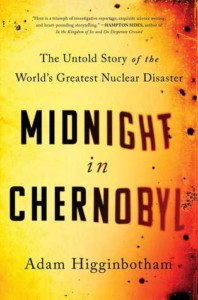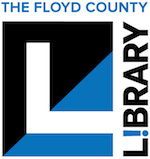 This riveting nonfiction book tells the story of the horrific Chernobyl disaster.
This riveting nonfiction book tells the story of the horrific Chernobyl disaster.
On April 25, 1986, disaster struck. During a late-night safety test, Reactor 4 at the Chernobyl power plant exploded. Considered the most disastrous nuclear power accidents in history, Midnight in Chernobyl: The Untold Story of the World’s Greatest Nuclear Disaster by Adam Higginbotham (2019, 538 pages) tells the whole story for the first time. Readers get a history of nuclear power, a look at the development of the USSR’s nuclear power plants, and how a combination of shoddy construction, design flaws, and deficient safety procedures caused such a terrible accident.
Perhaps most fascinating to me is the examination of the event’s ramifications, which were far-reaching and perhaps still not fully known. Official death reports are minuscule compared to the estimates of thousands of acute and radiation-caused cancer deaths since the accident. Many towns and villages were evacuated and residents were afraid to have children, fearing birth defects cause by radiation exposure.
If you enjoy absorbing, readable nonfiction, particularly about disasters or modern history, this is a great read that I highly recommend.
Read Midnight in Chernobyl if you enjoyed any of the following:
- The Perfect Storm: The True Story of Men Against the Sea by Sebastian Junger (1997, 227 pages). This true adventure story pits men against nature in a struggle for survival.
- Accessory to War: The Unspoken Alliance Between Astrophysics and the Military by Neil Degrasse Tyson (2018; 576 pages). This compelling nonfiction book examines the relationship between scientific developments and military’s use of them.
- Five Days at Memorial: Life and Death in a Storm-Ravaged Hospital by Sheri Fink (2013; 558 pages). This powerful report shows the lives and deaths of those at Memorial Medical Center after Hurricane Katrina hit.
— Abby Johnson, Collection Development Leader
